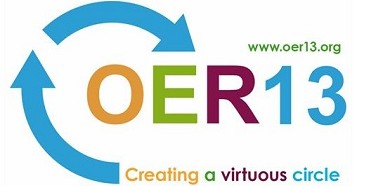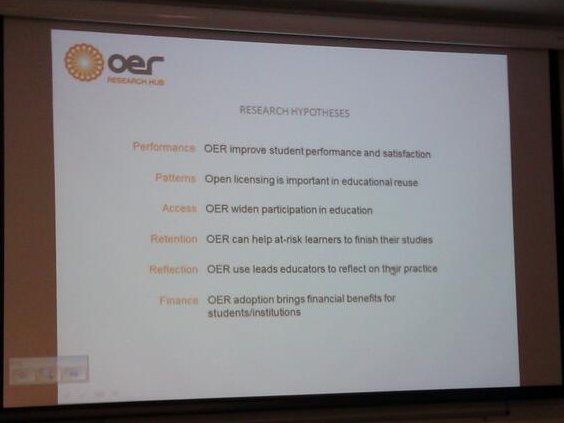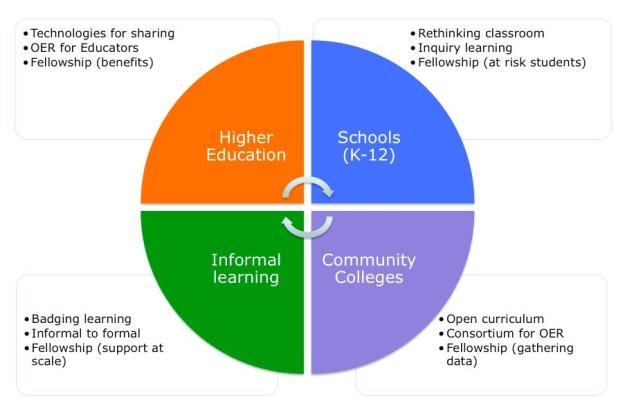Abstract and documentation available from https://www.medev.ac.uk/oer13/67/view/
Rob Farrow began describing the OER Research Hub with the question “How should we research openness in education?”. A philosopher by background Rob has reservations about an implicit aspiration to a scientific “lab model” when measuring the impact of OER. Like a real ecosystem it is messy and impossible to control more than a handful of variables; you would not seek to examine an entire natural ecosystem in one go and so it is with OER.
The broader education ecosystem, of course, is changing and Rob elicited the “evidence gap” that exists related to the widespread adoption of OER; benefits and barriers. There are complex relationships between diverse elements and there needs to be a flexible, holistic approach. The ecology metaphor also recognises the lifecycles implicit in OER projects and the resources themselves.
It is not easy to identify if it is the openness making the difference rather than, say, simply being digital so the OER Research Hub has placed openness at the heart of research aiming to collaborate and share data across projects rather than silos of data. It builds on the previous research of OLnet – http://www.olnet.org/ – and comprises structured metaresearch (lit review, case studies), consistently applied research instruments (that can be reused by other projects), access to records of student retention and performance to measure impact and research focused and synthesized through hypothesis testing:
The project collaborations are clustered across the four areas shown in the diagram below. In each sector there are two collaborations and a further fellowship with the project aiming to achieve breadth across the different core sectors of education and in the less formal structures that are growing around OER.
Anticipated outcomes are a greater transparency and openness of impact studies/data and the fostering of a fellowship across the community to provide the most complete “global” understanding of OER impact with better understanding of what works and why, helping us all to navigate the barriers.
A mantra to summarise the Research Hub would be that “the whole is greater than the sum of its parts” and the goals are best met by collaboration and sharing.


